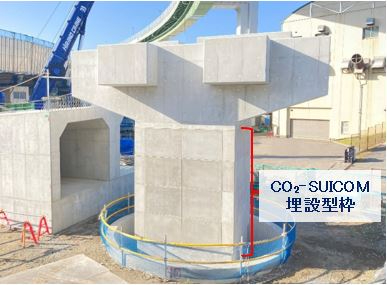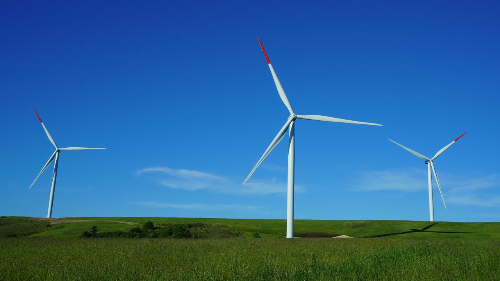J-STORIES ー 次世代のモビリティ(移動手段)市場を視野に世界で技術革新が進む中、「空飛ぶクルマ」の開発が新たな競争のフロンティアになっている。各社が特に力を入れているのは、環境にやさしく、コスト的な利点も期待されている電動垂直離着陸機(eVTOL、 electric vertical takeoff and landing aircraft)の普及だ。日本では2025年開催の大阪万博でのエアタクシーサービス実現に向けて、着々と準備が整いつつある。
eVTOL(イーブイトール)は、飛行機よりも低空を飛び、二酸化炭素(CO2)を排出しない新しい移動手段となる。ヘリコプターなどよりも運用コストを低くできる可能性もあり、大規模災害時の緊急輸送手段としても期待されている。
トヨタ自動車が出資する機体開発ベンチャーのジョビー・アビエーション(米国)は、今年5月、米連邦航空局(FAA)からエアタクシーサービスに必要な認証を取得、2024年のサービス開始を目標にする。10月には、日本での運行に必要となる「型式証明」を海外メーカーとして初めて国土交通省に申請した。
国内の自動車メーカーとしては、ホンダが自社で機体開発を行っている。また、東大発ベンチャーとしてスタートしたテトラアビエーション(東京都文京区)は個人顧客向けに機体を開発、21年から米国で1人乗りモデルの販売予約を開始している。

2025年の大阪万博では、エアタクシーの運用が大きな見どころになりそうだが、すでに大阪府、大阪市と連携協定を締結しているのが「日常の移動に空を活用する未来」を実現すべく2018年に設立されたスカイドライブ(愛知県豊橋市)だ。
スズキと技術提携している同社は、2020年に1人乗り試験機での有人飛行に成功。この9月には、2025年ローンチ予定の商用機SD-05のデザインを発表した。SD-05は乗客とドライバーの2人乗りで、最大航続距離約10km、最高巡航速度100km/hを想定している。

同社は、eVTOL機体開発から得たノウハウを活用して、30kg以上の荷物を運搬できる物流ドローンを2020年に実用化。山間部の作業現場などで運搬手段として利用され、作業効率の上昇、危険回避などに貢献している。
今年9月、同社は総額96億円の資金調達を実施した。その際に発表したニュースリリースの中で、福澤知浩代表取締役は「物流ドローンによる危険で大変な作業のサポート、そして2025年のエアモビリティのサービス開始を通じて、モノや人が自由に空を移動する世界を作っていきたい」とコメントしている。
記事:嵯峨崎文香 編集:北松克朗
トップ写真:Lazy_Bear/Envato
この記事に関するお問い合わせは、jstories@pacificbridge.jp にお寄せください。
***
***
本記事の英語版は、こちらからご覧になれます。




![[PODCAST] 日本新科技助攻不孕症治療(Part4)](https://storage.googleapis.com/jstories-cms.appspot.com/images/1768443226894unnamed-5_smallthumbnail.jpg)







![[PODCAST] 日本新科技助攻不孕症治療(Part4)](https://storage.googleapis.com/jstories-cms.appspot.com/images/1768443226894unnamed-5_bigthumbnail.jpg)







![[PODCAST] 如何打造成功的新創企業社群(第2集)](https://storage.googleapis.com/jstories-cms.appspot.com/images/1748493203370business-man-holding-light-bulb-social-network-2024-10-31-22-37-36-utc_smallthumbnail.jpg)


